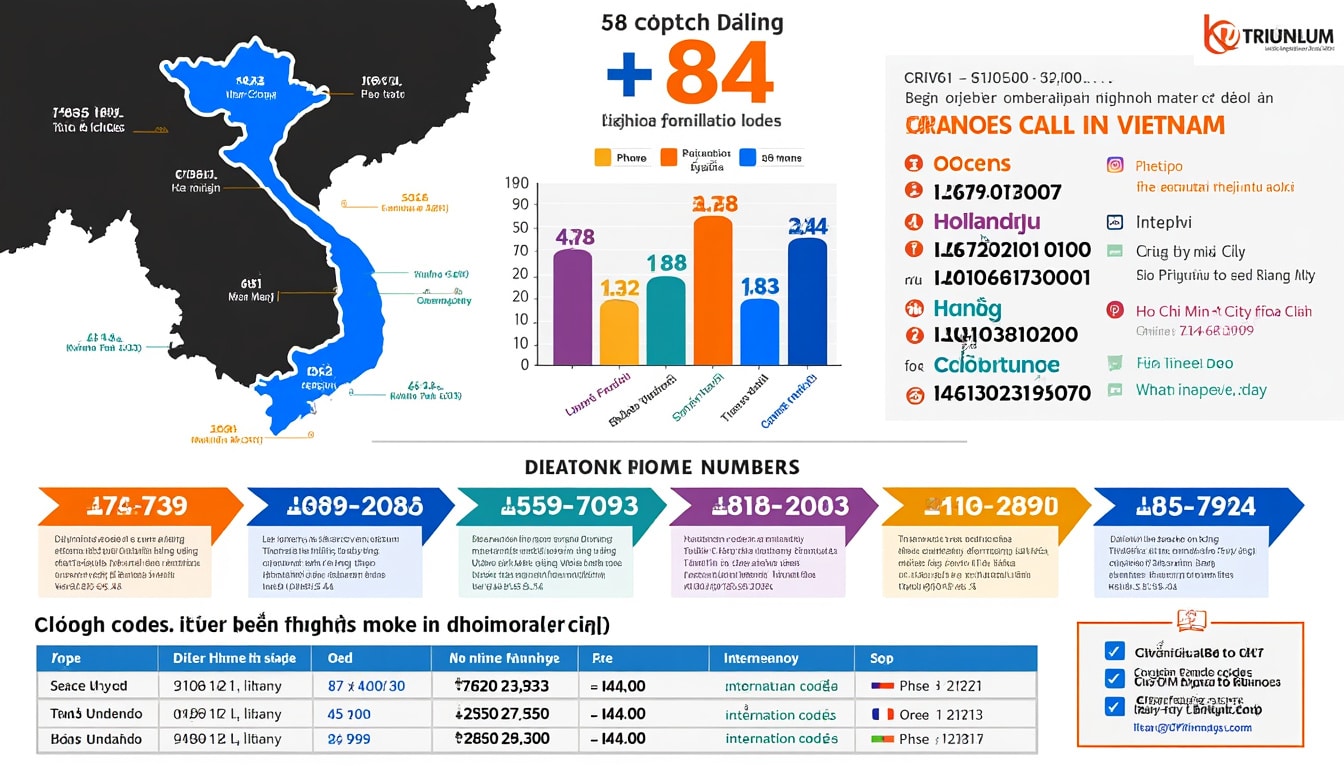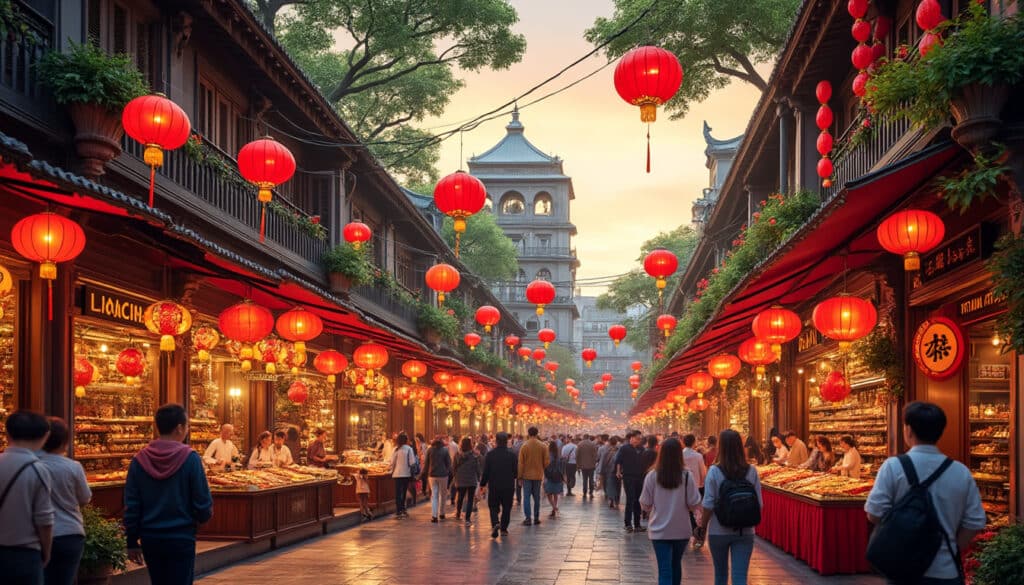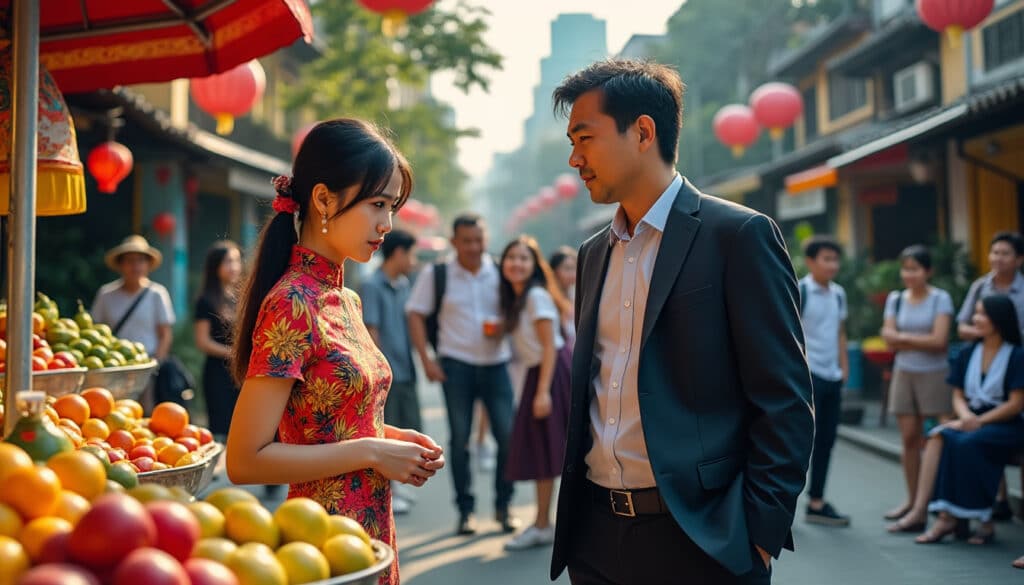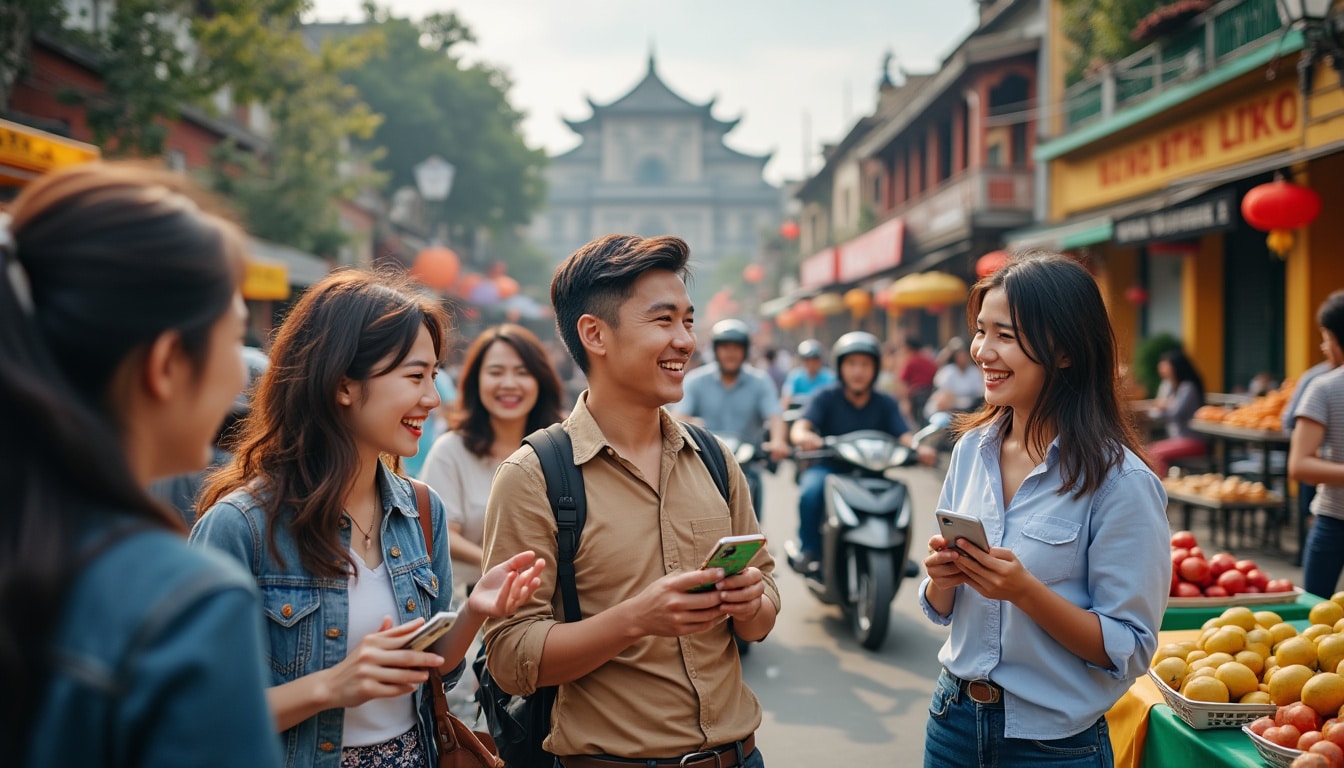In the bustling streets of Hanoi, where the aromas of pho and banh mi fill the air, knowing how to connect with locals can be a game-changer during your stay. Communication in Hanoi is not just about language; understanding local calling etiquette and dialing formats can enhance your experience, allowing seamless interaction with the vibrant culture. Whether you’re navigating Vietnam’s unique phone systems or using the latest messaging apps, mastering communication in this city will keep you connected and informed. Let’s unravel the complexities of calling and communication in Hanoi, ensuring your Vietnamese adventure is as smooth as possible.
Deciphering Vietnam’s Unique Phone Number System
Navigating the phone number system in Vietnam can initially seem daunting, especially with its unique blend of digits and codes. However, with a bit of knowledge, it becomes straightforward and manageable, allowing you to remain in touch effortlessly. Vietnam Telecom plays a significant role in regulating the telecommunications network, ensuring its efficiencies like the seamless operation of traditional landlines and mobile services, operated by major providers like Mobifone and VinaPhone.
The phone numbers in Vietnam usually begin with a distinctive code segment that indicates the network. For mobile numbers, this typically involves a 9-digit format beginning with either “9” or “1”. Meanwhile, fixed-line numbers are slightly different, consisting of an area code followed by a local number. This distinction helps in guiding effective communication across regions.

When making a call within Vietnam, dialing intrastate numbers requires adding a local prefix, such as “0” for mobile communications, whereas international calls require you to include Vietnam’s country code, +84. These systematic codes ensure that your calls reach the right destination without hitches.
It’s always wise to know when to skip certain prefixes. For instance, when dialing from another country, avoid using Vietnam’s domestic access code “0”, and include the international dialing codes when necessary.
Understanding Dialing Procedures
Here’s a quick guide to help ensure your calls in Vietnam are correctly placed:
- 📞 Mobile to Mobile: Dial 0 + Nine- to Ten-Digit Number
- 📞 Mobile to Landline: Dial 0 + Area Code + Local Number
- 🌍 International Calls: Dial Country Code (e.g., +1 for US) + Area Code + Phone Number
Looking for more insights on the Vietnam phone number system? Take a look at this comprehensive guide for additional context.
Etiquette and Practices in Hanoi’s Communication Landscape
Effective communication within Hanoi hinges on understanding cultural nuances and etiquette, which is as crucial as mastering the technical aspects of calling. The city’s vibrant atmosphere reflects a blend of traditional respect alongside modern technological adoption, factors that influence how people connect and communicate.
In general, interactions in Hanoi are guided by politeness and respect. When entering conversations, particularly phone calls, initial greetings like “Alo” serve as a universal icebreaker. Additionally, using titles as forms of respect—the equivalent of Mister or Miss in Vietnamese—adds a layer of courtesy esteemed throughout the city.
Importance of Body Language and Tone
While direct conversation remains key, non-verbal cues such as tone, pace, and volume hold equal importance. They are seen as indicators of engagement and understanding. For instance, maintaining a calm and pleasant tone often translates to respect and openness, which are deeply valued in Vietnamese culture.
Considering an immersive local experience? These daily life facts about Hanoi offer insights into how locals converse and engage, both socially and professionally.
Leveraging Technology: Apps and Services for Effective Communication
The digital era brings a wealth of communication options in Hanoi, offering alternatives that bypass traditional cell and landline usage. With the proliferation of smartphones, messaging and calling apps such as Zalo, Viber, and WhatsApp allow for cost-effective, often free, communication over Wi-Fi or data services.
To further enhance your connectivity, consider using international mobile services from companies like AT&T, Verizon, and T-Mobile, known for providing comprehensive packages suited for travelers in Vietnam.
Integrating Popular Messaging Apps
Understanding which app aligns best with your needs can facilitate effective communication. Here’s a quick breakdown:
| App | Benefits |
|---|---|
| 📱 Zalo | Local favorite for messaging and social connections |
| 📞 Viber | Subscription-free international calls |
| Global reach and ease of use |
It’s beneficial to enhance your devices with international roaming and avoid hefty charges. Skip traditional mobile data costs by using mobile Wi-Fi routers available at many tourist locations in Hanoi.
Navigating International Communication Hurdles
Connecting internationally from Hanoi involves understanding varied country-specific protocols that might differ from Vietnam’s. This includes learning about other country codes, like those for the USA (+1), Thailand’s TrueMove, France’s Orange, or the UK’s Vodafone services.
When dialing internationally from Vietnam, remember to replace Vietnam’s area code with your destination’s country code. This ensures that your calls bypass international barriers smoothly. Gaining insight into whether your destination requires special prefixes is a detail worth sorting to ensure seamless connectivity.
Common International Dialing Challenges
Ensure you avoid these pitfalls as you connect globally:
- 🔴 Omitting Country Codes: Always check your country’s unique code.
- 🔴 Including Extra Zeros: Refrain from including leading zeros before area codes or numbers.
- 🔴 Misjudging Time Zones: Keep time differences in mind to ensure your calls are well-timed — discover more about Hanoi’s time zone here.
These tips help prevent communication hiccups that could disrupt crucial exchanges, solidifying your path to smooth global interaction.
Optimizing Your Communication Strategy in Hanoi
Preparing your communication approach while in Hanoi involves more than understanding numbers and prefixes. It includes creating a strategy that maximizes efficiency while minimizing costs. Your journey in the city becomes more enriching by incorporating techniques and tools that streamline connectivity effectively.
Smarter communication involves blending traditional and digital methods. Utilizing landlines might seem old school but offers reliability in certain instances. However, exploring competitive data packages or Sprint services ensures that your mobile experience is robust and consistent.
Essential Tips for Optimal Connectivity
Consider these strategies for a successful communication plan:
- 📡 Data Roaming Plans: Choose plans that provide daily, prepaid options to keep costs manageable.
- 📕 Local Directories: Familiarize yourself with local services that can assist in emergencies or provide needed information.
- 🔗 Internet Cafés: Utilize available Wi-Fi, maintaining access while exploring without using excess data.
Feel equipped to explore Hanoi’s diverse landscape of communication? Discover further insights on Hanoi’s local facts to blend seamlessly into the city’s lively culture.
Frequently Asked Questions
Even seasoned travelers might have questions about Hanoi’s unique communication frameworks. Here are some of the most common inquiries:
- 📞 Q: What’s the standard prefix for mobile numbers in Hanoi?
- 🚨 A: Mobile numbers typically start with “0” in Vietnam as a domestic code.
- 💼 Q: How can I save on mobile charges in Vietnam?
- 💰 A: Use a local SIM card from Mobifone or other providers for affordable prices and utilize Wi-Fi where possible.
- 📲 Q: Can I use international calling cards in Hanoi?
- 🌍 A: Yes, international phone cards can be utilized for cost-effective communication, bypassing traditional carrier charges.

Legal Information and Rules in Hanoi
The dynamic city of Hanoi is rich in history, culture, and evolving legal complexities. Navigating through its legal landscape can seem daunting, especially for newcomers residing in or doing business in the capital of Vietnam. With the burgeoning growth of…

Criminal status and entry to Hanoi
Exploring the vibrant city of Hanoi, the capital of Vietnam, is on the bucket list of many international travelers. However, for those with a criminal record, questions may arise about whether they can visit this captivating city and what procedures…

Drinking and age restrictions in Hanoi
Amidst the vibrant culture and bustling life of Hanoi, understanding the drinking and age restrictions becomes essential whether you’re a local, an expat, or a traveler. In a city where historic tradition mingles seamlessly with modern rhythms, knowing where and…

Hanoi, the capital city of Vietnam, is a place that fuses the vibrant energy of the present with the rich cultural echoes of the past. As such, it offers a distinct experience, especially during its public holidays. From bustling markets…

Hanoi, the bustling capital city of Vietnam, is a dynamic convergence of rich history, vibrant culture, and modern amenities. For anyone considering a move to this fascinating city, understanding the legal pathways and necessary arrangements is crucial. This guide provides…

Smoking, drugs, and red light laws in Hanoi
Hanoi, the bustling capital of Vietnam, is renowned for its ancient charm and dynamic street life. Yet beneath its picturesque facade lies a web of complex and often misunderstood laws surrounding smoking, drugs, and red-light activities. As a visitor or…

Social and discrimination issues in Hanoi
Hanoi, the bustling capital of Vietnam, is a city rich in history and culture. Beneath its dynamic exterior, however, lie complex social and discrimination issues that affect various communities. From the application of legal codes that stifle dissent to the…

